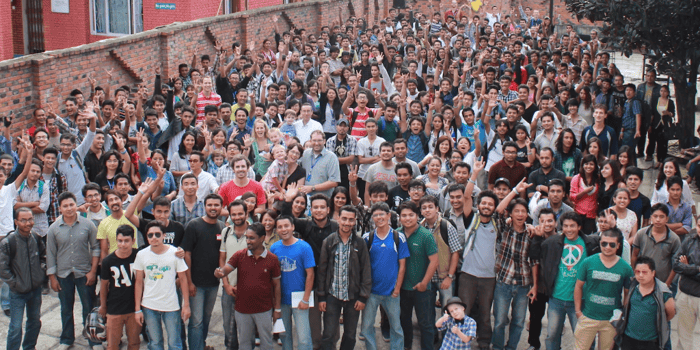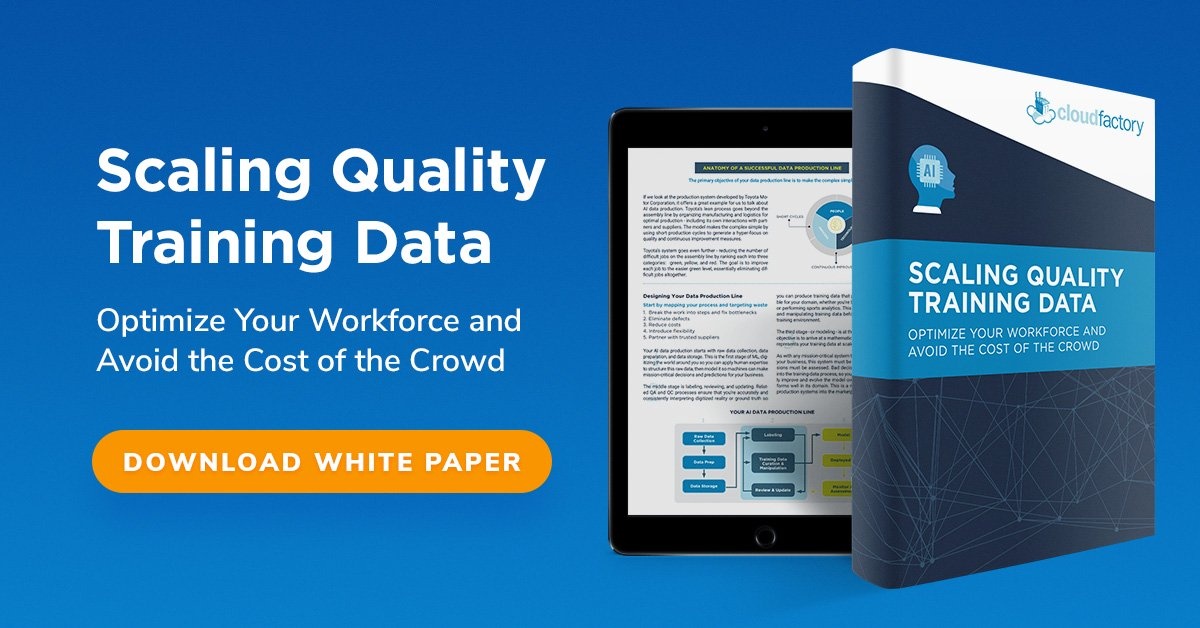Six years ago, we published a conversation one of our employees had with his mom about the company I’d founded the same year. Here’s a preview of the conversation I’m likely to have with my mom this holiday season about the company that has outsmarted outsourcing.

Mom: How has CloudFactory changed in the last six years?
Me: Well, we’ve certainly come a long way. We’ve learned how to use technology and training to manage our workforce, produce high-quality work for our customers, and teach workers to become leaders in their communities. In that time, we have received $13.6 million in funding to support our mission to bring meaningful work to people in countries where there are a lot of talented people but few opportunities to work. We also expanded from Nepal to Kenya, the United States, and the United Kingdom.
We still do the routine, repetitive work that companies need to power product features and invent new technologies. For example, we transcribe receipts for one company that automates the collection of data for business expense reports. That’s a product feature. We work with another company that uses our workforce to pore over hours of video from self-driving vehicles and outline the contours of the road and other items in the frame, like road signs and pedestrians, to help the car's software operate safely.
Mom: Aren’t there robots that can do that work?
Me: Yes, but they can’t do all the work yet. Humans still have to train robots - and by that, I mean the software that runs them - to recognize objects, speech, text, and other elements of our human world.
For example, there is software that recognizes words and numbers. It’s called optical character recognition (OCR). Many OCR systems can recognize more than 90% of the text on a page. But sometimes, there will be characters the software cannot distinguish or instances where human expertise is required to make the call on how to proceed. That’s where CloudFactory comes in. We add the humans to the technology “stack” - which is the group of software, technology, and support required to power a technology or feature.
Mom: Why don’t your customers just hire their own workforces?
Me: That’s a great question, mom. One of the reasons they don’t hire in-house teams is because they don’t have the time or resources to hire, manage, train, and oversee another group of employees. And, because the work is so routine and repetitive, hiring your own team can result in a lot of turnover in staff. It can be difficult to retain a staff that does that kind of work.
Mom: Isn’t that risky - just to send your work to someone else to do? How do customers communicate with workers?
Me: During the sales process, we ask a lot of questions to determine whether a company’s work is a good fit for CloudFactory’s workforce. We use technology to connect our workers to work and our customers to the workforce. The software platform we created allows customers to go online to see their team’s productivity and progress.
To make the whole experience smoother and more personal, each customer is assigned a team lead who is in contact with the workers on that project, so changes in the work can be implemented quickly. Teams have the support they need to understand the work to be done and what constitutes high-quality work, so our customers often rave about the accuracy of the work they get back.
Mom: Could I get my own CloudFactory workforce?
Me: Sure! But we still don’t do laundry or housework. That would be pretty helpful for you, I know. You’d need to be doing a high volume of work to require a managed workforce. Are you thinking about starting a company?
Mom: I’d love to, but it’s more fun to watch you run CloudFactory. Who actually does the work?
Me: We have lots of talented workers, and our team is growing every day. We have employees who keep our workforce and business engines humming, and we have thousands of workers in Nepal and Kenya who do the day-to-day customer work.
Mom: What are the development opportunities you provide to workers?
Me: We provide all CloudFactory team members with opportunities to grow their management, leadership, and technical skills. They get training, feedback, and support from managers and peers along the way. We respect every worker as a person, and we want them to succeed at CloudFactory and in life.
Development opportunities are about more than business. A couple of weeks ago, our Kenya office held a baking class for interested workers. It was a huge success, and all of us, spread across four continents, heard about it through the online channels we’ve created to communicate with one another.

Mom: Wow. That’s great. Are CloudFactory workers happy?
Me: I love that you asked that question. In fact, our research shows they are. We conduct an annual survey of our workers, and every year, more than 90% of them say they are happier because of their experience at CloudFactory. We’re pretty excited people like it here, because that makes it easier for us to fulfill our mission to provide meaningful work to talented people in places around the world where opportunities are limited.
Mom: You look hungry. Here, have some food.
Me: Love you, mom.
Outsourcing Impact Sourcing Culture & Mission Workforce Strategy



